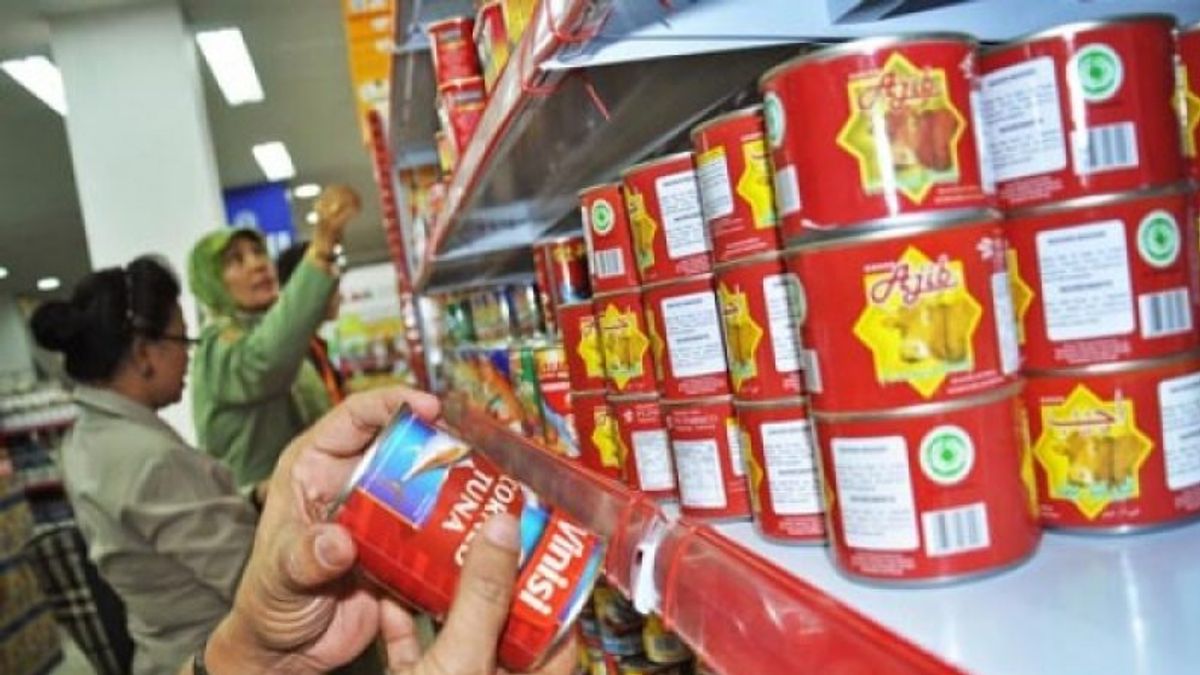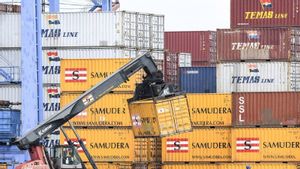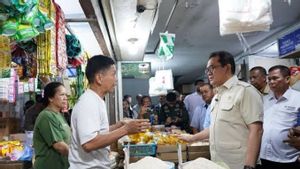JAKARTA - The government of President Joko Widodo (Jokowi) is committed to controlling the consumption of sugar, salt and fat in processed foods, including ready-to-eat processed foods.
This is stated in Government Regulation (PP) Number 28 of 2024 concerning Implementing Regulations of Law Number 17 of 2023 concerning Health which was signed on July 26, 2024.
"In order to control the consumption of sugar, salt and fat, the Central Government has determined the maximum limit for sugar, salt and fat content in processed foods, including ready-to-eat processed foods," quoted in Article 194 paragraph (1) of the regulation, Tuesday, July 30.
In addition, referring to Article 194 in the regulation, the central government can determine the imposition of excise on certain ready-to-eat processed foods in accordance with statutory provisions.
"In addition to determining the maximum limit for sugar, salt and fat content as referred to in paragraph (1), the Central Government can determine the imposition of excise on certain processed foods in accordance with the provisions of the legislation." read Article 194 paragraph (4).
Meanwhile, determining the maximum limits of sugar, salt, and 'fat as referred to by the minister who organizes coordination, synchronization, and control of ministry affairs in the administration of government in the fields of human development and culture by including' the relevant ministries and institutions.
Article 195 explains that everyone who produces, imports, and/or distributes processed foods including ready-to-eat processed foods must meet the maximum provisions for the sugar, salt and fat content that is set and includes nutritional labels including sugar, salt, and fat content in packaging for processed foods or in the information media for ready-to-eat processed foods.
Everyone who produces, imports, and/or distributes processed foods including ready-to-eat processed foods that exceed the maximum limit stipulated for sugar, salt, and fat content is prohibited from advertising, promotion, and sponsoring activities at certain times, locations, and target groups.
In addition, everyone is prohibited from selling or circulating processed foods, including ready-to-eat processed foods, which exceed the maximum provisions for sugar, salt and fat content in certain areas.
Then, everyone who produces, imports, and/or distributes processed foods including ready-to-eat processed foods is limited and/or prohibited from using substances that risk causing non-communicable diseases.
Furthermore, if everyone violates these provisions, administrative sanctions can be subject to written warnings, administrative fines, temporary suspension of production activities and/or product circulation, processing food withdrawal from circulation; and/or, revocation of business licensing.
Responding to this, the Director of Communication and Guidance for Service Users of the Directorate General of Customs and Excise at the Ministry of Finance, Nirwala Dwi Heryanto, said that the provisions in the PP were still limited to proposals from the Ministry of Health.
"That's just a suggestion from the Ministry of Health," he told the media crew, Tuesday, July 30.
Nirwala explained that his party had not conducted a study of processed goods in the PP as new excisable goods (BKC).
"It's not there (the study), the person who has been studied and has been proposed to become a BKC is a sweetened drink in packaging, right, if it's all kinds of junk food, it hasn't," he said.
SEE ALSO:
Nirwala said that there are at least four criteria for goods that can be subject to excise duty by the government, namely that consumption needs to be controlled, circulation needs to be monitored, have a negative impact or externality on health and the environment, as well as its burden for justice and balance.
"There are four, right, goods whose consumption must be controlled, the circulation must be monitored, continue to use or consume it, it causes negative externality both health and the environment, and the criteria for the need for state levies to balance," he explained.
Nirwala said that the goods that will be subject to excise must first go through approval from Commission XI of the DPR.
"Therefore, levies to the public, right, must be discussed with the DPR, so there are conditions even though they are included in the BKC criteria, but if it is not approved by the DPR, you don't work," he said.
The English, Chinese, Japanese, Arabic, and French versions are automatically generated by the AI. So there may still be inaccuracies in translating, please always see Indonesian as our main language. (system supported by DigitalSiber.id)















